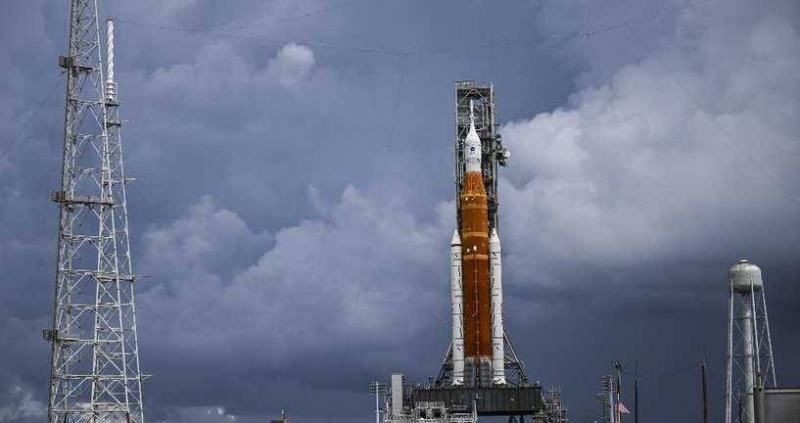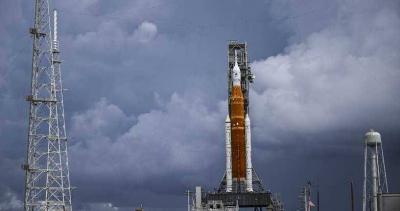The American space agency "NASA" announced the postponement of the launch of its new giant rocket to the Moon, which was scheduled for Saturday. The launch cancellation came after a leak of super-cooled liquid hydrogen was detected being pumped into the fuel tanks.
The rocket was supposed to launch at 2:17 PM local time for the Eastern United States (6:17 PM GMT) from the Kennedy Space Center in Florida. NASA had been working to fix technical issues that caused the last-minute delay on Monday.
John Honeycutt, the manager of the "SLS" rocket program, stated on Thursday that initially, one of the rocket's four main engines seemed to be too hot, but it later turned out to be just a false reading due to a sensor issue. Additionally, a leak in the fuel tank needed to be repaired. Launch director Charlie Blackwell-Thompson explained, "We were able to identify what we believe is the source of the leak and fix it."
The mission of "Artemis 1" is to launch the uncrewed "Orion" capsule into lunar orbit to ensure that the vehicle is safe for future astronauts, including the first woman and the first person of color to walk on the Moon.
Mike Sarafin, the NASA official for the "Artemis" mission, said, "There's no guarantee that we will succeed in the launch on Saturday, but we will try." After 42 days in space, the primary goal is to test the capsule's thermal shield as it re-enters Earth's atmosphere at speeds approaching 40,000 kilometers per hour and temperatures equivalent to half the sun's surface temperature. Dummies equipped with sensors that record vibrations and radiation levels will be transported in the vehicle.
The capsule will reach 64,000 kilometers beyond the Moon, farther than any other crew-capable spacecraft to date. After this first mission, "Artemis 2" will transport astronauts to the Moon in 2024 without landing on its surface. The first landing of a crewed mission will occur with the "Artemis 3" crew in 2025 at the earliest. NASA aims to launch one mission per year thereafter, with the goal of establishing a permanent human presence on the Moon, creating a space station in lunar orbit ("Gateway"), and a base on its surface.




